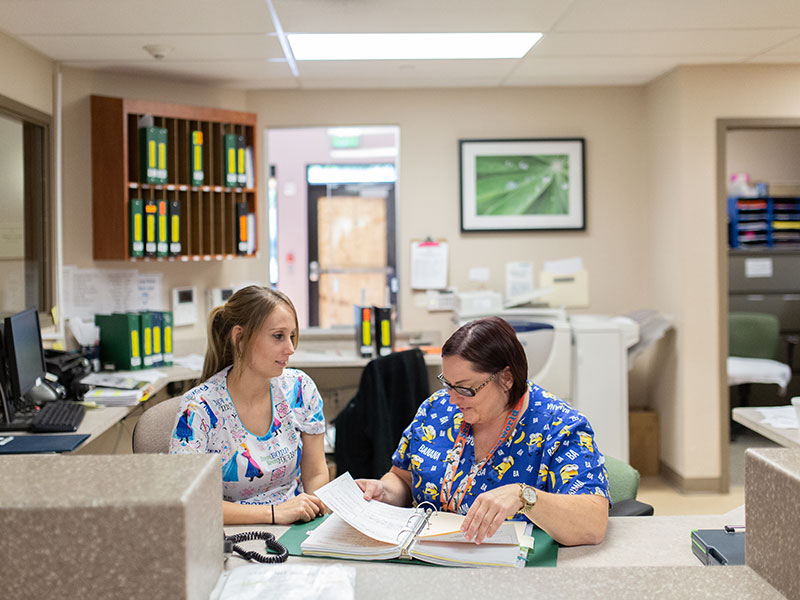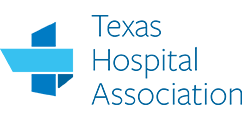Cedar Crest Hospital & Residential Treatment Center helps individuals who are struggling with ADHD find long-term recovery. Located in Belton, TX, Cedar Crest is the leader in mental health care.
Co-Occurring Disorder Treatment
Learn more about ADHD treatment at Cedar Crest Hospital & Residential Treatment Center in Belton, TX
Attention-deficit hyperactivity disorder (ADHD) is one of the most commonly diagnosed mental health disorders in childhood and can continue through adolescence into adulthood. The key characteristics for both childhood and adult ADHD include having a difficult time staying focused and paying attention, hyperactivity, distractibility, impulsiveness, restlessness, and the presence of emotional difficulties. All of these symptoms cause both children and adults to experience difficulties in all areas of their lives. While there is currently no cure for this disorder, treatment can relieve many of the symptoms and make it possible for individuals to lead successful, productive lives.
Cedar Crest, a hospital for ADHD treatment in Belton, successfully helped thousands of individuals and families for over 30 years. Our proven history of success in treating substance abuse and mental health issues ensures that we can provide you with the treatment needed for your ADHD. You do not have to continue to struggle to get through each day alone, the staff at our ADHD hospital can help.
How to Help a Loved One
Helping a loved one get treatment for ADHD
Having a loved one with a mental health disorder can be upsetting and stressful. Not only is it hard for you to see your loved one struggle on a daily basis, but your life is being affected as well. Treatments for mental illnesses like ADHD are highly effective, however many individuals choose to not seek help. This is why it is important for friends and family members to step in and help their loved one realize that they do indeed need help. Here are some general signs to look for that indicate your loved one needs help:
- Angry outbursts and bad tempers
- Problems taking care of themselves
- Engaging in risky behaviors, including substance abuse
- Problems thinking, such as become disoriented or seeing/hearing things that aren’t really there
- Intense feelings of anxiety
- Problems interacting with others, withdrawn from others
- Inability to work or go to school
If you notice these behaviors in your loved one it is important that you make the time to talk to your loved one and encourage them to seek the treatment they need. Here are some things to keep in mind when approaching them:
- Let them know that you need to have an important conversation with them
- Pick an appropriate time and place
- Approach them with empathy
- Be prepared for them to be upset and try not to get defensive
- Use I statements
- Facilitate the process by finding a professional and scheduling an appointment
In addition to talking to your loved one about seeking treatment it is also important to remember that supporting them is a long-term process. Make sure to take the time to check in with them on a regular basis to see how treatment is going and if there is anything you can do to help. Finally, it is also important that you look into seeking professional help for yourself.
Why Consider Treatment
Why consider treatment for ADHD at Cedar Crest Hospital & Residential Treatment Center in Belton, TX
An individual with ADHD tends to find themselves constantly being late for work or appointments, disorganized, forgetful, and in general overwhelmed with their responsibilities. This disorder not only affects children, but adults as well and the frustrating symptoms can hamper everything from your job to close relationships. If left untreated and continued into adulthood, most individuals will have been suffering with debilitating symptoms for years, often being labeled lazy or stupid due to their forgetfulness and difficulty completing tasks. This can cause an individual to develop negative views about themselves and possibly develop depression. Additionally, untreated ADHD can cause physical health issues, financial difficulties, relationship problems, and other mental health problems. It can cause embarrassment, frustration, hopelessness, and disappointment, which can cause an individual to feel that their life is out of control.
Inpatient treatment for ADHD can be extremely helping at educating individuals about their ADHD, allowing them to better face their challenges and begin taking advantage of their strengths. Through such treatment you can learn how to make changes in your life that will lead to better outcomes. Individual therapy, group sessions, family therapy, and experiential treatment are all designed to help patients get their symptoms under control while also providing them with the additional support they need.
Our Philosophy
Cedar Crest Hospital & Residential Treatment Center philosophy and benefits
At our ADHD treatment center our goal is to help all of our patients reach their maximum potential that allows them to once again be fully functioning members in their community. We focus on individual strengths, making sure to build people up so that they can once again be happy and successful in life. Additionally, we make sure to look at each patient in their own environment and take into account family, home life, and support network. Our treatment provides a range of mental health and substance abuse services for children, adolescents, adults, seniors, and military personnel.
Types of Treatment
Types of ADHD treatment offered at Cedar Crest Hospital & Residential Treatment Center in Belton, TX
The treatment approach at our center for ADHD treatment acknowledges that individuals face multiple pressures in today’s society. We teach our patients that in order to grow as a person treatment must include developing healthy expression of emotions, community involvement, teamwork, openness to alternative viewpoints, and accountability for one’s own actions. Once an initial assessment has been completed over the phone to determine the potential client’s presenting problem and the level of care that will best fit their needs, a face-to-face assessment will be scheduled. Based upon the results of the assessment, a treatment plan will be developed to provide for each patient’s unique needs. Some of the follow treatment approaches we use to help treat your ADHD may include:
Medication: Medication, most commonly stimulants, is often used to help those with ADHD control some of their symptoms. These medications can help reduce hyperactivity and increase ability to focus. Medication is closely monitored at our treatment center and altered if needed.
Individual therapy: During these individual sessions individuals can learn how to better monitor their behavior and also process any emotions they may be feeling. Therapists at our treatment center will often use cognitive behavioral therapy to help patients identify their negative thoughts and replace them with more positive ways of viewing the world.
Group therapy: Group sessions are held on a daily basis at our hospital in Belton, starting each morning with a morning goals group. Throughout the day individuals may also attend groups focused on coping skills, life skills, medication management, and ADHD education. Not only do groups provide individuals with knowledge about their disorder, they also allow them to connect with others who are struggling with similar issues.
Family involvement: Family therapy is an essential part of the treatment process at our treatment center and family members are encouraged to come visit throughout their loved one’s stay. Family members will learn more about their loved one’s ADHD and how they can be more supportive.
In addition to traditional therapeutic methods we offer a number of experiential treatment options including the following:
- Recreational therapy
- Yoga
- Art
- Swimming pool
Continuing Care
Continuing care and levels of treatment for ADHD
When your time with us is drawing to a close at our treatment center in Belton, TX, you will meet with your therapist and a case manager who will help to get the discharge process complete. Before you leave our doors we will make sure that you have an appointment set up for your next phase of treatment, ensure that you have a stable living situation, and provide you with transportation. On the day of discharge you will meet with your psychologist and other treatment team members to make sure that you are stable and everything is in place to make the transition as smooth as possible.
We do offer a few outpatient treatment options that may be beneficial for some of our patients who no longer need the intensive care offered through inpatient treatment. Our partial hospitalization program (PHP) is designated for youth ages 10-17 years of age and is a day treatment program designed to teach living and coping skills and address personal responsibility and positive interactions within the family, school, and community. We also have an outpatient program that is available to patients of all ages whose symptoms are not severe enough to meet the criteria for other treatment levels, but still interfere with daily life. Finally, if a patient is far enough along in the recovery process they may be ready to discharge home and will be provided with referrals for traditional outpatient therapy.

















